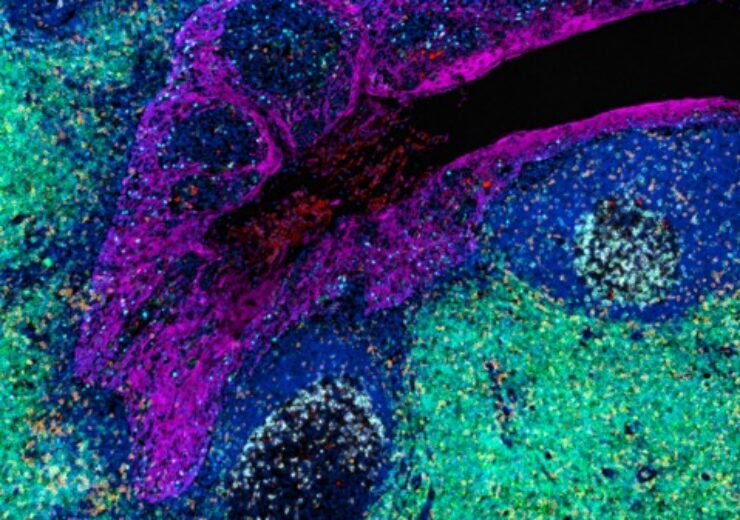The partnership will combine the power of spatial biology and AI technologies to develop a novel, high multiplexed immunofluorescence (IF) panel and associated AI-powered algorithm for biomarker discovery and development

Extract from a 10-plex immunofluorescence stain on human tonsil tissue. (Credit: Business Wire/Propath UK)
Israeli spatial biology company Nucleai and Propath UK, a CRO in biopharmaceutical sector, have partnered to develop and validate 30-plex immunofluorescence (IF) panel.
The new panel will focus on protein targets relevant to immuno-oncology.
Under the collaboration, Nucleai will leverage its validated AI assay, and Propath its expertise in multiomic spatial biology and high-plex immunofluorescence.
The AI technology will enable the new panel to provide insights from immunotherapy trials and support the development of novel biomarkers and companion diagnostics (CDx).
Propath will help develop a novel protocol using the Lunaphore COMET platform, which facilitates the analysis of 30 high-value protein targets from a single tissue section.
In addition, the company will leverage its experience across a range of spatial proteomic and transcriptomic projects, based on its in-house multiomic platforms.
Propath UK chief executive Krish Soni said: “Spatial biology is transforming biopharma research by enabling deeper analysis of cell phenotypes with the full spatial context in the tissue microenvironment.
“We are delighted to collaborate with Nucleai on this ambitious project which will empower researchers to unlock the potential of spatial biology, with relevance to programs from discovery through to translational and clinical research.”
The collaboration follows Nucleai’s recent announcement of the partnership with Swiss laboratory equipment provider Lunaphore to provide AI-powered spatial biology analysis for drug discovery.
Nucleai’s AI-powered biomarker discovery platform, combined with Propath’s multiomic spatial biology and high-plex immunofluorescence will advance drug development and research.
The three-way synergy between Propath, Lunaphore and Nucleai is said to bring new capabilities to pharma companies.
Furthermore, the combined expertise would facilitate computational analysis of the tumour microenvironment, and predict disease prognosis and drug response.
Nucleai CEO Avi Viedman said: “Our strategic partnership with Propath has far-reaching implications in biomarker discovery.
“The collaboration allows us to develop and deploy AI-based multi-modal models to identify unique sets of previously unavailable biomarkers and drug targets. Together, we are pushing the boundaries of pathology tissue analytics.”
